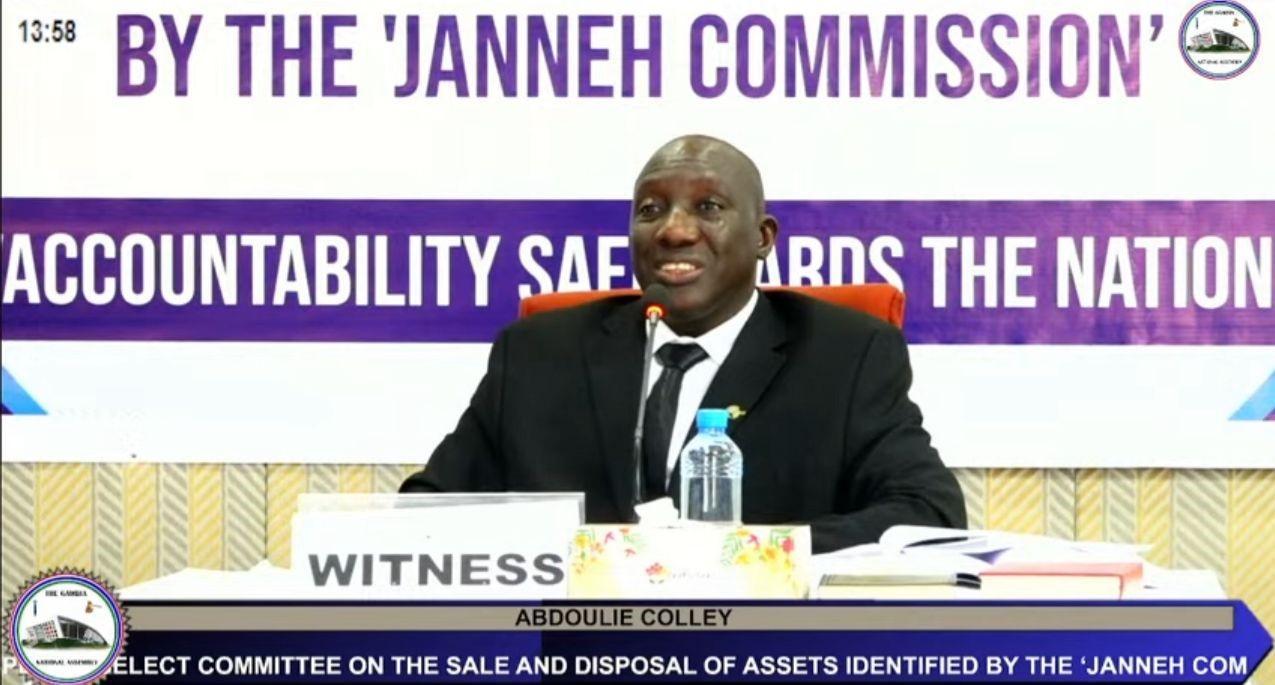Africa-Press – Gambia. Former Registrar General, Abdoulie Colley, who was yesterday reappeared before the Special Select Committee on the Sale and Disposal of Assets Identified by the Janneh Commission on Thursday, conceded that lapses in his office affected the management of properties and assets linked to former President Yahya Jammeh and his associates.
Colley faced probing questions over why key High Court orders were not executed and why the commission’s requests went largely unaddressed during his tenure.
Colley acknowledged that standing High Court orders mandated the Registrar General to take custody of assets belonging to the former president. However, he explained that he did not immediately assume responsibility because there had been no formal handover from his predecessor, and he wanted to avoid acting outside proper authority. “Institutional memory is important. I didn’t inherit it, and they didn’t offer to hand over everything to me,” he told the committee.
The committee questioned why Colley did not follow up with the Attorney General or Solicitor General for information on the task force set up by his predecessor. He admitted he could have done so but argued that, at the time, the lack of a formal transition made immediate action imprudent. He also cited administrative delays, including colleagues who had not vacated offices, which further complicated the handover process.
Meanwhile, he confirmed that he was unaware of some sales of assets, including vehicles and livestock, conducted by the commission until after the Ministry of Justice convened a follow-up meeting, following a National Assembly resolution. He maintained that he acted only when matters were formally brought to his attention and denied any direct role in mishandled sales.
The Registrar General also addressed issues regarding the cancellation of property titles. He explained that although he received internal memos instructing the title cancellation, he only recorded them as encumbrances, arguing that they lacked legal effect. He maintained that the government’s white paper, which followed the Janneh Commission’s recommendations to forfeit, sell, or transfer properties to public use, took precedence over the memos.
His testimony highlighted gaps in institutional processes and revealed challenges in enforcing court orders during transitional periods. While he emphasized caution and adherence to legal procedures, the committee’s questioning underscored how lapses in handovers and communication contributed to delays in managing assets linked to former President Jammeh, leaving critical properties in legal and administrative limbo.
For More News And Analysis About Gambia Follow Africa-Press






